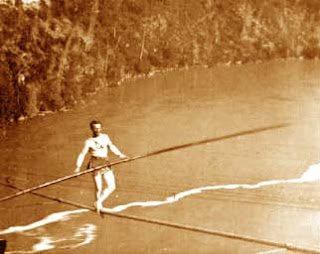Good innovations in products and services answer a need, as we all know. Sometimes this need is so blatant and obvious, it hits you round the face - music on the go that doesn't disturb others is a classic. Or sometimes the need is one you didn't know you had, but, by golly - you couldn't live without that product now - as in PostIts. And sometimes it's not a need at all, but it's damned good to have. Like Marmite Crisps.
But there are plenty of human needs that you know all about but there's no way you're going to mention them to that nice lady moderating the Group Discussion. Ahem.
The anonymous digital world has meant, of course, that there's been a huge increase in these nudge-nudge-wink-wink needs being answered, from the legions of otherwise wholesome mummies reading really rather grubby books to the following little gem.
FakeShower is an app that spares your blushes from your nearest and dearest. Have a look at the video if you want to know the awful truth.
But one question remains in my mind. Who takes their iPhone to the loo with them at home? Should I do some market research to find out?
GOING FORWARD – MORE PROOF
2 years ago










